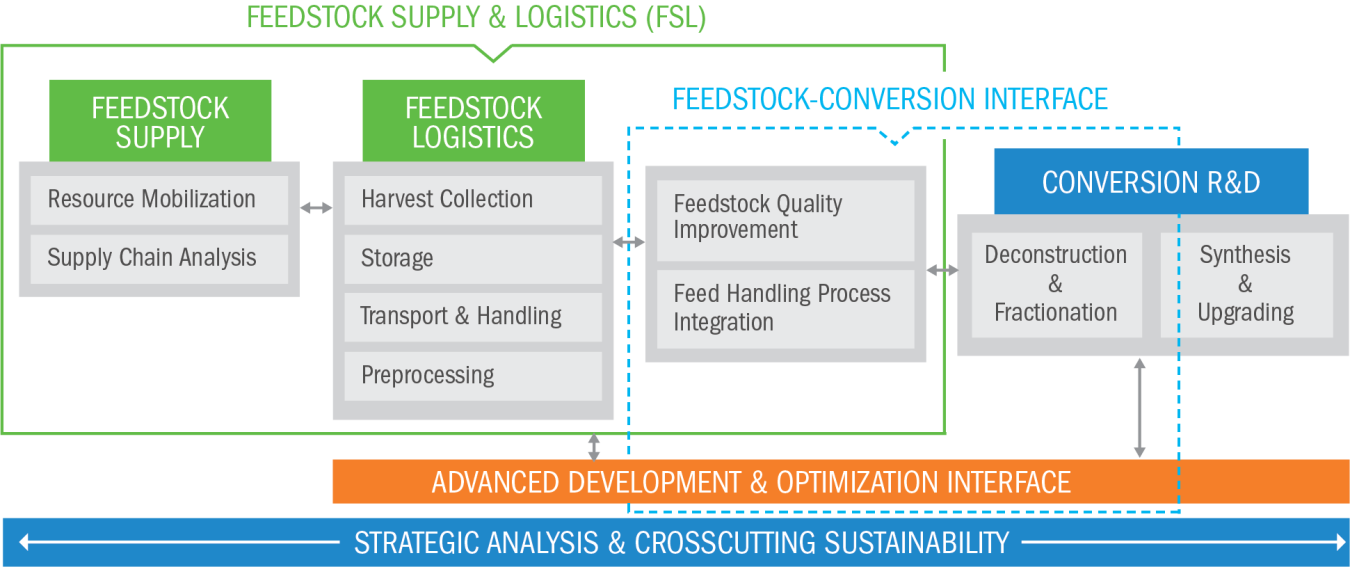A priority for the Bioenergy Technologies Office (BETO) Feedstock Technologies program is to support the development of cost-effective strategies, technologies, and systems to viably harvest and deliver volumes of biomass feedstock at the quality needed by biorefineries. This is known as "Supply" and the areas of focus within are Supply Chain Analysis and Resource Mobilization.

Feedstock Technologies program research and development scope and interface diagram.
Resource Mobilization
Biomass production efforts involve engaging with agencies within the U.S. Department of Agriculture (USDA) and with the U.S. Department of Energy's Office of Science and Advanced Research Projects Agency-Energy programs on:
- Collecting and analyzing data on energy-crop production and traits (e.g., yields, composition, stress tolerance, disease resistance, and water and nutrient use efficiency)
- Improving crop variety, crop genetics, genomics, and genetic engineering
- Monitoring the development of best management and renewability practices for energy cropping systems.
Supply Chain Analysis
Supply chain analysis requires the use of agronomic, economic, and agricultural engineering data and models to understand and quantify the availability of renewable carbon sources. This work includes data and scenario development and nation-wide modeling of the economic and spatial availability of biomass resources.
Moisture content, ash, carbohydrates, and lignin are all important factors in feedstock quality. These factors maybe be correlated with genotype, region of distribution, weather conditions, seasonality, and other variables.
Supply chain analysis efforts include identifying where the distribution of renewable and re-usable carbon sources such as energy crops may be manageable through cultivar selection, spatial distribution, production strategies, and/or harvest and collection operations and identifying the impact on cost of these “supply-side” quality controls.

